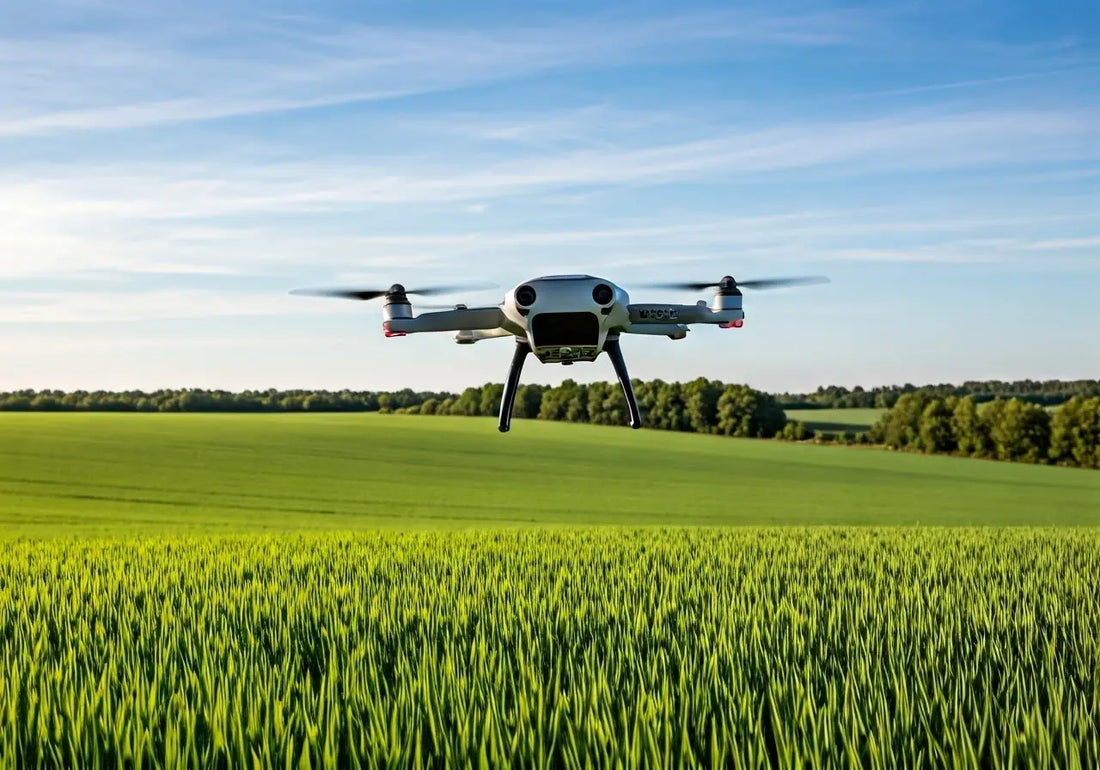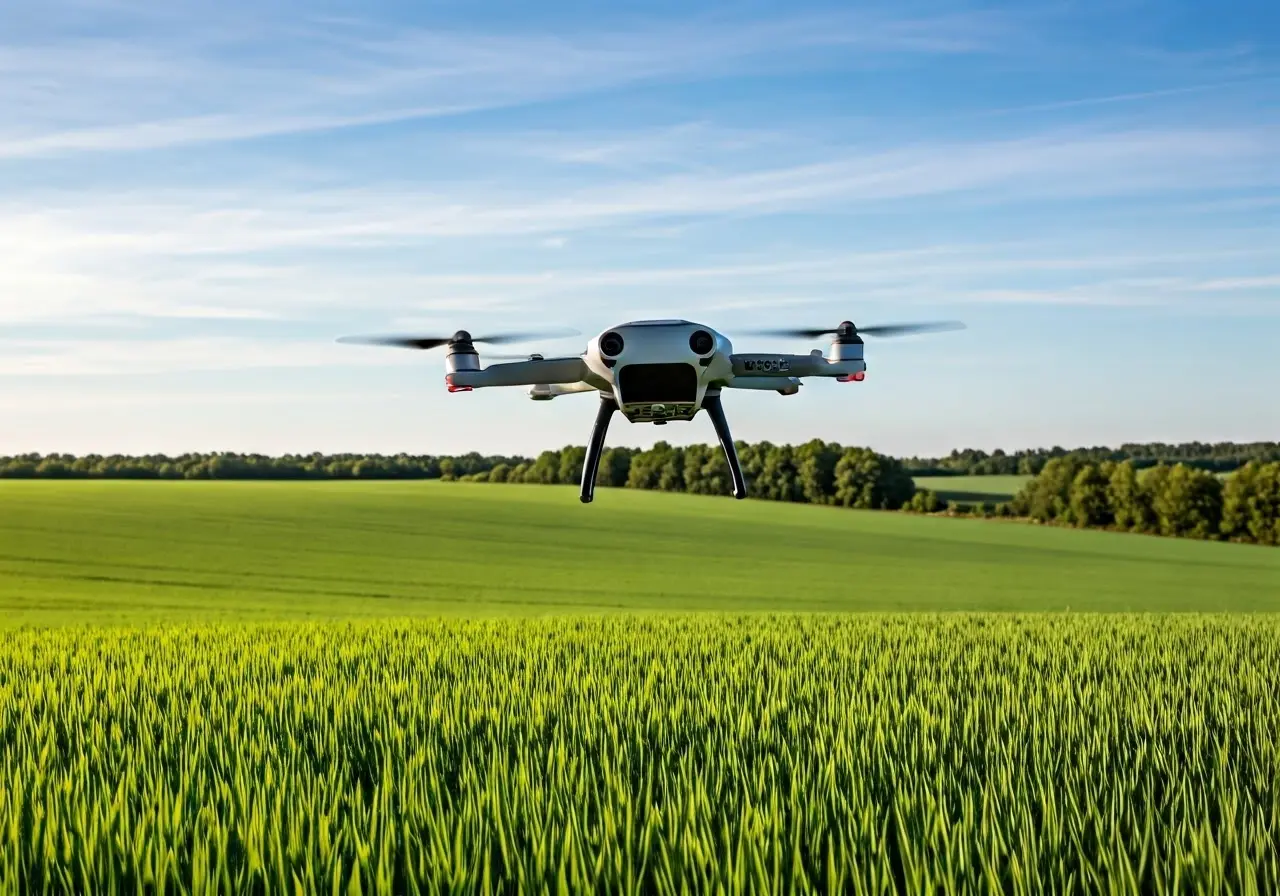
Maximizing Farm Efficiency with DJI Agras Series Drones
Share
In recent years, farm management has been revolutionized by technology. The DJI Agras Series drones have emerged as a leading innovation in agricultural efficiency. These drones offer a range of functionalities designed to streamline farm operations. In this blog, we’ll explore how these drones are transforming modern farming, making tasks easier and more efficient.
Introduction to DJI Agras Series Drones
The DJI Agras Series is a collection of drones specifically engineered for agricultural purposes. Equipped with cutting-edge technology, these drones are designed to optimize farming processes, enhance crop management, and improve yield efficiency. From large farms to smaller fields, the adaptability and versatility of the Agras drones are capturing the attention of farmers worldwide. Designed with a user-friendly interface, they make integrating state-of-the-art technology into everyday farming practices not only feasible but also highly advantageous. As these drones continue to change the face of agriculture, understanding their capabilities can unlock new productivity levels and sustainability in farming.
With the rise of agricultural drone technologies, the DJI Agras Series stands out due to its specialized focus on farming needs. Unlike conventional drones, which may require complex adaptations for farm use, Agras models come pre-equipped with features tailored for agriculture. For instance, their spraying systems are engineered for precise application of fertilizers and pesticides, minimizing waste and ensuring environmental safety. As noted in our comprehensive guide about their use on small farms, these drones are rapidly becoming essential tools in modern farming toolkits.
Key Features and Specifications
The drones in the DJI Agras Series come with features such as precision spraying, advanced obstacle sensing, and high-capacity tanks. These specifications ensure that tasks like crop dusting and pesticide spraying are performed accurately and safely. Their ability to navigate challenging terrains while delivering payload efficiently sets them apart in the realm of agricultural innovation. Each drone is engineered to handle a variety of agricultural inputs, which means farmers can precisely control distribution patterns and doses, significantly enhancing resource management. The advanced technology embedded in these drones illustrates a leap forward in ensuring every drop counts, thereby driving down operational costs.
Moreover, features like multi-sensor arrays and intelligent flight modes mean these drones can gather comprehensive data about crops, helping farmers make informed decisions. This data-driven approach enhances farm productivity by offering actionable insights and detailed field analyses. When comparing these models to traditional equipment, the efficiency gains are striking—highlighting the substantial improvements that DJI Agras Series drones bring to agricultural operations.
Additionally, the integration of real-time video transmission systems, akin to the Matrice 350 RTK, extends the operational capabilities of the Agras drones. With high-definition imaging and precise mapping capabilities, these drones present a remarkable toolset for enhancing farm operations through both real-time monitoring and historic data assessment. The synergy of these technologies ensures that farmers are equipped with the best tools to elevate their agricultural processes, paving the way for innovative, data-driven decision-making.
How Drones Enhance Farm Efficiency
DJI Agras drones significantly cut down the time and labor required for various farm tasks. By automating processes and providing detailed aerial data, these drones enable farmers to make informed decisions and increase productivity. The efficiency gains are striking, with drones covering acres of land in minutes—a task that would take hours or even days manually. This change not only accelerates farm operations but also allows farmers to focus on other critical aspects of farming, enhancing overall farm management efficiency.
Furthermore, the incorporation of drones allows for precision in farming activities. These drones are particularly beneficial in executing tasks such as targeted spraying, ensuring even the most challenging crops and terrains receive optimal treatment. Precision is crucial, as evidenced by the significant reduction in both input costs and environmental impact. By focusing on targeted application, Agras drones minimize waste and enhance results, aligning with sustainable agricultural practices.
In conjunction with advancements in AI and machine learning, the scope of drone utility continues to expand, paving the way for greater operational automation and decision-making challenges resolved by intelligent systems. This evolution hints towards a future where agricultural drone technologies further revolutionize farming with predictive analytics and optimized operations.
Benefits of Precision Agriculture
Precision agriculture with DJI Agras drones allows for targeted interventions on crops, reducing waste and utilizing resources more effectively. This leads to healthier crops and a more sustainable farming environment. Tailored interventions mean fertilizers, water, and pest control measures are applied precisely where needed, improving the ecological footprint of farming practices by conserving inputs and maximizing outputs.
Precision farming also enhances the ability to respond to specific crop needs swiftly. The drones collect and analyze data rapidly, offering real-time insights that empower farmers to address issues such as nutrient deficiencies or pest infestations immediately. This swift response is critical for maintaining crop health and ensuring higher yields. As seen in different farming scenarios, the implementation of precision techniques using drones can lead to significant costs savings and increases in productivity.
This transition to data-driven farming heralds a new era for agriculture, where every decision is backed by accurate, timely information—transforming how farmers approach their work. As these technologies mature, their role in achieving efficiency and sustainability goals will only increase. Exploring how these drones facilitate resource optimization can reveal even greater savings, emphasizing their undeniable impact on modern agriculture’s future.
Real-World Applications and Success Stories
Farmers worldwide have adopted DJI Agras drones, reporting increased efficiency and improved crop yields. Case studies highlight the significant benefits these drones bring to agricultural operations. Farmers have documented substantial decreases in water use and the remarkable outcomes of their vineyards and orchards following drone integration. Other testimonies reveal enhancements in crop quality and reductions in labor inputs—demonstrating the effectiveness of drones as comprehensive solutions for diverse farming needs.
These success stories underline the tangible advantages of drone technology in agriculture. By integrating drones, farmers can optimize their operations with minimal disruption while achieving notable improvements in yield quality and quantity. The collected data offers insights into every aspect of farming, from field health assessments to precise treatment applications—transforming traditional practices into modern marvels of technology-driven agriculture.
Adopting DJI Agras series drones signifies more than just technological advancement; it is a strategic evolution towards sustainable, productive agriculture. These stories illuminate how the intersection of innovation and agriculture is setting new benchmarks in farm operations and best practices. As success stories continue to emerge, they present compelling evidence of what’s possible when premium agricultural tools are leveraged to their fullest potential.
Future Prospects for Drone Technology in Farming
As drone technology continues to evolve, the future looks promising for agriculture. Advancements in AI and machine learning are expected to further enhance the capabilities of drones, ensuring even more efficient farm management. The ability to predict crop performance, automate complex tasks, and gather detailed environmental data provides a glimpse into next-generation farming practices. This future promises higher efficiencies and precision in farming operations.
The extension of drone functionalities will likely lead to more comprehensive and interconnected farming systems. Drones will work in harmony with other technologies, such as IoT sensors and smart equipment, to create an ecosystem that maximizes productivity and sustainability. This integration points towards a future where drones not only follow predefined paths but also adapt dynamically based on real-time data processing.
In summary, the potential for drone technology to revolutionize agriculture is immense. By continuing to invest in these advancements, farmers can stay ahead of the curve and harness innovation to tackle pressing agricultural challenges. At TJ Aerosense, we’re committed to exploring these evolving trends and offering solutions that meet the needs of our agricultural partners. As drone technologies advance, so too does the future of farming, paving the way for innovation-driven agriculture.
Embracing the Future of Farming
The DJI Agras Series drones are a testament to how innovation can drive farm efficiency. By integrating these advanced tools into farming practices, both small and large-scale farmers can achieve better results with less effort. As technology continues to advance, embracing such innovations is crucial to staying ahead in the agricultural industry.

